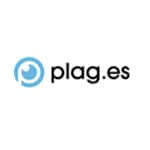The implementation of the curricular strategies in the Univerty Center “Panchito Gómez Toro”
Abstract
The Cuban Higher Education conceives as priorities to ensure the quality of the integral formation of the professional with a social humanist approach through the university processes, within these the educational teaching process enables the work of educating from the instruction and the link of the university with life . To fulfill this purpose, it is necessary to work with the different curricular strategies designed for each career, these require coordinated work to be developed in the different subjects of the curriculum, including labor practice. The objective of this work is to propose methodological workshops to improve the implementation of curricular strategies of university professors. Several methods and techniques of the theoretical, empirical and statistical-mathematical level were applied, supported from a dialectical-materialist conception. The results achieved demonstrate a better preparation of teachers in the implementation of curricular strategies and their departure from the class; contributing to the comprehensive training of professionals as required at the present time, with the implementation of the workshops in order to integrate it into the educational teaching process, we can point out its marked practical nature and correspondence with current demands.
Keywords: curricular strategies; integral training; methodological; workshops methodological work; professionals.
Downloads
References
Añorga Morales, J. (1995). Postgrado y desarrollo en América Latina. Ediciones del Centro de Estudios e Investigaciones sobre Educación Avanzada (CEISEA).
García Batista, A. (2013). El proceso pedagógico de postgrado: fundamentos, retos y aplicaciones: Pedagogía 2013, curso 7. Sello Editor Educación Cubana.
García Ruíz, J., González Navarro, I. y Rodríguez Gregorich, A. (2021). Las estrategias curriculares en la formación integral del profesional universitario. Atenas: Revista Científico Pedagógica, 2(154), 204-217.
García Viamontes, I., Boffil Vega, S. I. y Reyes Fernández, R. M. (2022). Papel de la universidad en la formación de las capacidades locales con equidad social y de género a partir del Programa Académico de Maestría en Gestión del desarrollo Local. Opuntia Brava, 14(2), 90-104. http://opuntiabrava.ult.edu.cu/index.php/opuntiabrava/article/view/1572.
Lau, F. (2014). El Trabajo Metodológico. En Las Universidades de Ciencias Pedagógicas. La disciplina Principal Integradora y Las Estrategias Curriculares (pp. 13-18). Tabloide. XIII Seminario Nacional Para Educadores,
Ministerio de Educación Superior (MES). (2023). Resolución 06/2023. (Autor).
Ministerio de Educación Superior. (MES). (2022). Resolución 47/2022. http://siteal.iiep.unesco.org/sites/default/files/sit_accion_files/cuba_resolucion47-2022.pdf
Oficina Regional de Educación para América Latina y el Caribe Orealc/Unesco. (2017). Declaración de Buenos Aires. “E 2030: Educación y Habilidades para el siglo 21”. Buenos Aires, Argentina. http://unesdoc.unesco.org/images/0024/002472/247286S.pdf
Saborido Loidi, J. R. (2018). La universidad y la agenda 2030 de desarrollo sostenible en el centenario de la Reforma Universitaria de Córdoba. Visión desde Cuba. Editorial Félix Varela.
Published
Versions
How to Cite
Issue
Section
License
Copyright (c) 2024 Yamilka Crespo Recaño, Maida Lucía González Fernández, Mario Bruno Claro Páez

This work is licensed under a Creative Commons Attribution-NonCommercial-NoDerivatives 4.0 International License.











